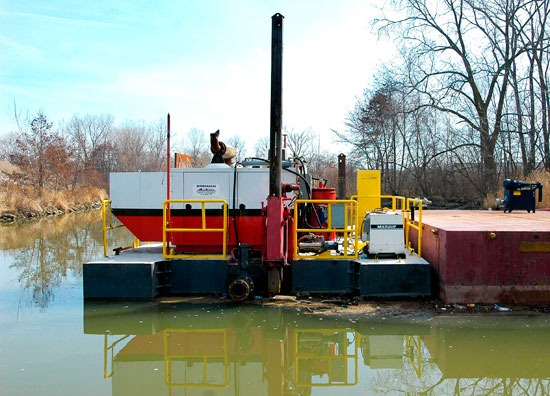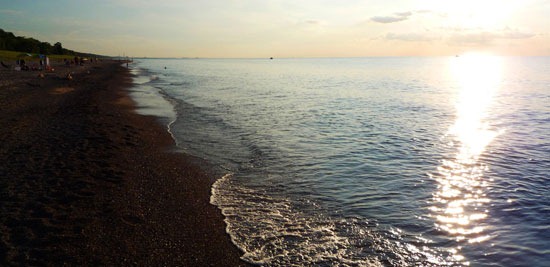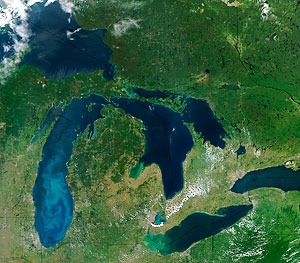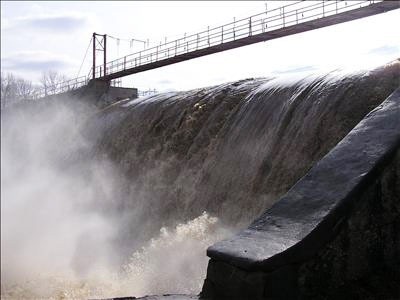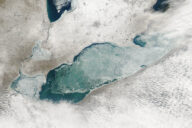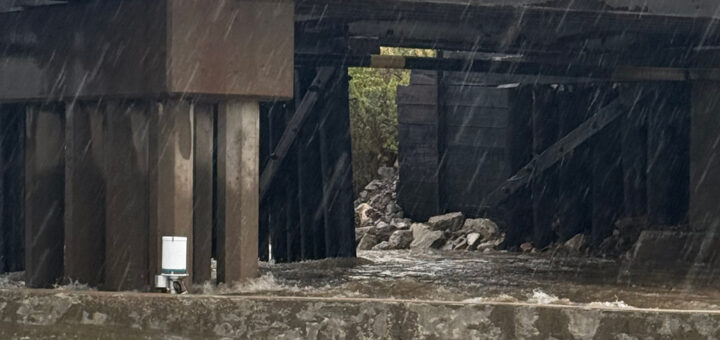Results disputed in study of Lake Huron and Michigan water levels
0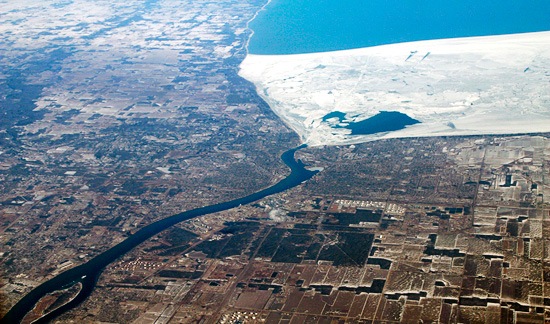
Ice from Lake Huron wedges between Port Huron, Michigan, on he left, and Sarnia, Ontario, on the right. To the bottom, water flows into the lake from the St. Clair River. An International Joint Commission study concluded that water level drops in Lakes Huron and Michigan stemmed from an ice block in the St. Clair during the 1980s.
Lakefront property owners have disputed results of an International Joint Commission study examining why water levels in lakes Michigan and Huron are below average, according to the Milwaukee Journal Sentinel. The IJC has responded by extending the public comment period, originally set to last week, to May 10.
Nearly 100 scientists and engineers worked since 2007 to compose the IJC study, which was released last spring. It concluded the following:
- Water levels in the lakes had dropped by as much as five inches.
- The cause was an ice jam on the St. Clair River during the 1980s that eroded the riverbed
- The riverbed is no longer being eroded, thus eliminating the water loss problem.
The IJC has been challenged on all three of these conclusions.
The investigation arose from a smaller examination funded by a group of Canadian lakefront property owners, who are now the ones contesting the IJC results. The owners said the study conclusion underestimates the water level loss, that the problem is ongoing, and they reject the notion the problem was caused by an ice jam. Even the study’s authors have moved away from this theory, saying they’re now uncertain what caused the riverbed erosion.
The study also determined that a 3-5 inch loss of water was insufficient to merit seeking a fix in the St. Clair River that would increase lake water levels. Environmental groups, however, have argued even a water loss of this degree justifies investing in a remedy.
To learn more or submit your comments, see the IJC’s site on the study or the complete report (PDF). The commission also provides updates about upcoming public hearings on its Facebook page.
Lake study input term extended [The Milwaukee Journal Sentinel] Impacts on Upper Great Lakes Water Levels: St. Clair River (PDF) [IJC International Upper Great Lakes Study Board] Image Credit: http://www.flickr.com/photos/docsearls/ / CC BY-SA 2.0




